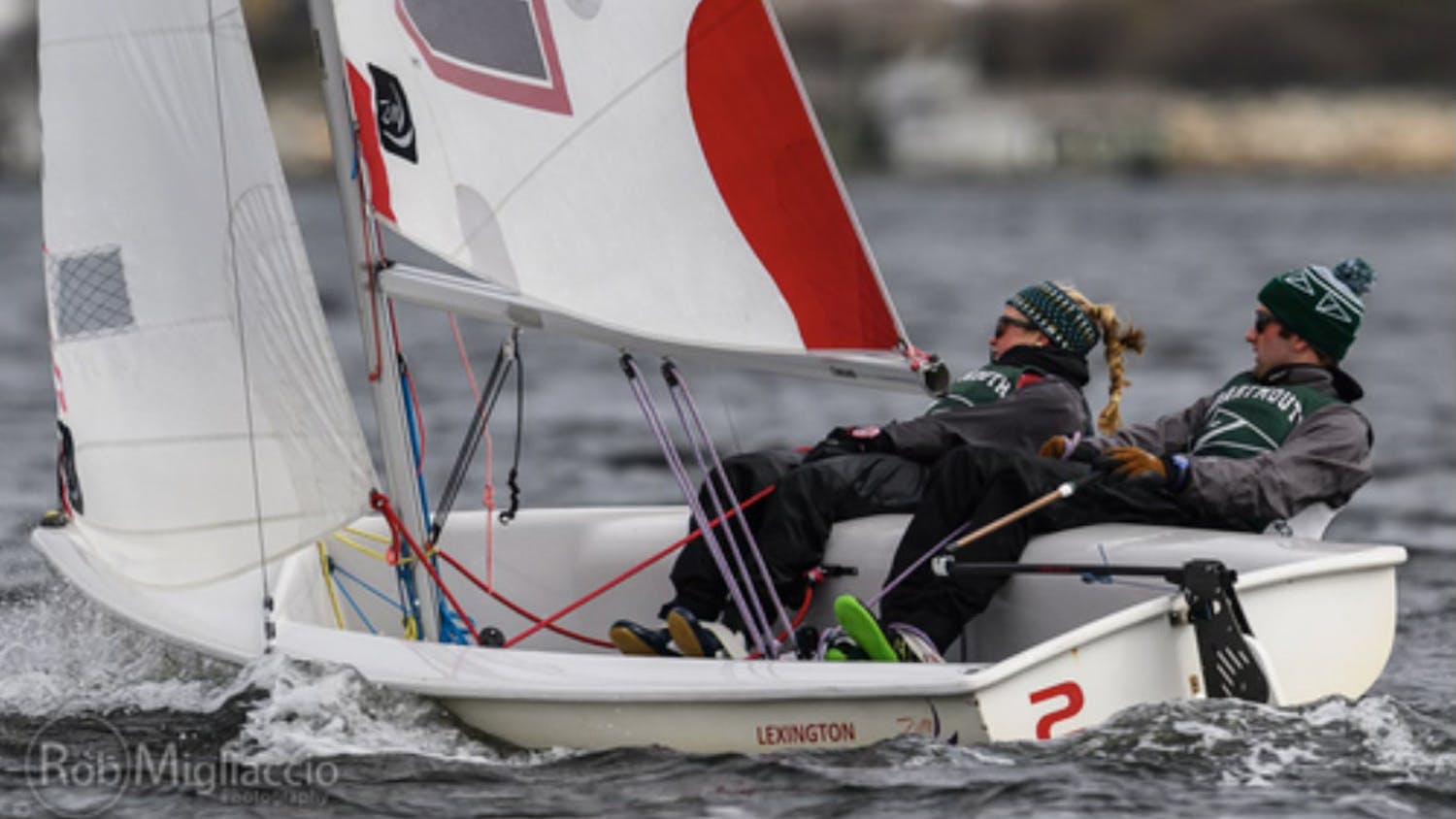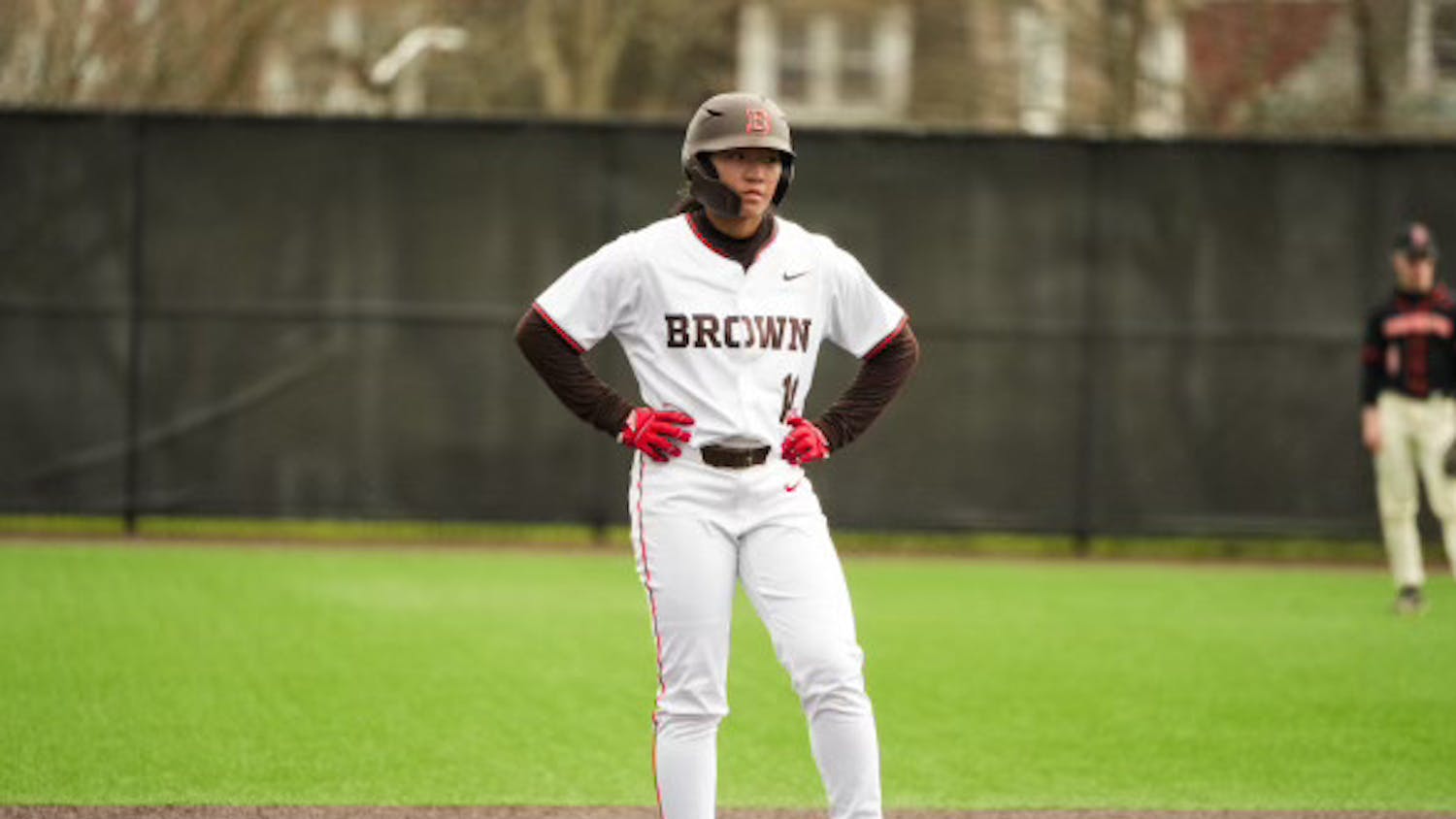Something happens to a man when he puts on his mask. When he finishes his coffee, laces his skates, tapes up his stick and stretches out his body, he becomes someone else. When James Kruger ’16 skates onto the ice, he leaves behind the fraternity brother, the psychology major and the family man. When he skates onto the ice, he becomes a competitor. James Kruger becomes a goalie.
“I think the goalie thing is almost a place that I go in my head that is a little bit separate,” he said. “I’m not in my goalie mindset when I’m walking around. When I’m in my goalie mindset, I have a very, very narrow focus. I compartmentalize a lot. I take all the things going on elsewhere and put them in the back seat for those two hours —just totally dive into the game.”
Between the pipes, Kruger is identified by head coach Bob Gaudet and alternate captain Eric Neiley ’15 as focused, driven and, above all else, competitive.
Winning, Kruger said, is among the best feelings in the world.
“I like to win, there’s no doubt” he said. “Everything is a little better when you win. Food tastes a little better. That’s what I like. That’s when I feel good.”
Despite his appetite for victory, the one-dimensional and admittedly tired story of the all-or-nothing athlete — the big man on campus with the pumped out chest of Chad Johnson or Alexander Ovechkin — couldn’t be any further from the truth about the butterfly-style goalie.
“He’s pretty laid back I think, at least off the ice,” Neiley said. “He’s really quiet and keeps to himself. On the ice, he’s a completely different guy. He wants to win and you can tell he’s got the drive to win, but otherwise he’s quiet. He doesn’t say much to people. [Kruger] is probably the hardest guy to have to say something about because he’s so quiet.”
Raised in suburban Minnetonka, Minn. as the second of four children, Kruger began playing hockey at a young age. He stumbled upon his role as goalie after making a good save in youth hockey. The only boy in his family besides his father — a lawyer for Cargill — Kruger characterized his sisters as all incredibly different.
His mother, who he described as “one of the most social people” he knows, will always be found in conversation. She will often come to Hanover to visit, asking him to bring his friends to dinner so she can talk to them and ask them about their lives.
On the surface, the quiet son of an outgoing hockey mom can be subtle and enigmatic, as he described himself.
“I can be sociable, and I like to be, but I’m not a frat animal or anything,” he said. “I go out and have a good time but I like to be laid back and be more observant. I like people and getting to know them, but I like to fly under the radar. It’s just how I am.”
Not unlike the plight that strikes the common quiet man, Kruger is characterized over and over again as a person who likes to and usually does keep to himself. From his perspective, however, being quiet and thoughtful are characteristics that allow him to observe the people around him, sparking his interest in psychology. Understanding and getting to know people and “how they tick,” Kruger said, is a constant draw.
Before coming to Dartmouth, Kruger spent two years in junior hockey, one in the North American Hockey League and the other in the British Columbia Hockey League. Between the two seasons, he turned down an offer to play Division I hockey at the Air Force Academy, wanting to give himself the chance to have a more traditional college experience.
Even that decision, he said, was carefully weighed and measured — sized up for its prospective benefits for his future. Neither hockey nor academics were ever put ahead of one another in his list of priorities, with both being second to family. With the brain and athleticism to get him a look, he set his sights on the Ivy League.
Since coming to the Big Green, Kruger spent the better portion of his first two seasons on the bench, sidelined his sophomore year with a broken hand.
Yet as the puck dropped for his junior year, Kruger became the go-to starter, playing 14 of the team’s 15 games so far and landing himself one spot short from the top 20 ranked goaltenders in Division I hockey with a .924 save percentage. Since the season started, he’s had two shutouts — one against then no. 1 Boston University, and one shootout victory over then no. 11 University of Denver.
While Kruger’s impressive skills on the ice make it hard to take your eye off him, he doesn’t view victory as a solitary achievement. After each of those games, Kruger doled credit out to his team who made each win possible. The other 28 students on the team, Kruger said, are his best friends.
“They’re the guys you go to war with,” he said. “They’re the guys you are around every day. Everyone understands the culture of it. It’s so natural. It’s fundamental to who I am as a hockey player.”
Following his shutout of the Terriers, Kruger said in an interview — still geared up, true to his persona of a goalie — that he would enjoy the victory for that night before getting back to work the very next day.
The drive to be successful, to be accomplished and to win shines through every aspect of James Kruger, the hockey player’s, life. If this drive is the most prominent aspect of his personality on the ice, though, then something perhaps truer to his everyday self — the quiet, introspective and observant kid from Minnesota who spends his days with friends on the team — remains at least somewhat intact when he puts on his uniform.
When asked if he would leave Dartmouth to goaltend for the very best team in the country and become a national champion, he said — with absolutely no hesitation — “There’s no way. There’s not a chance. You make a commitment to your team. That’s just the way it is. It’s not even a question, not even a thought.”



